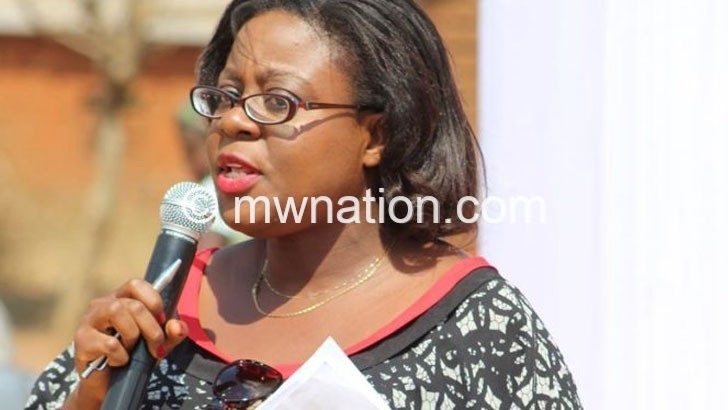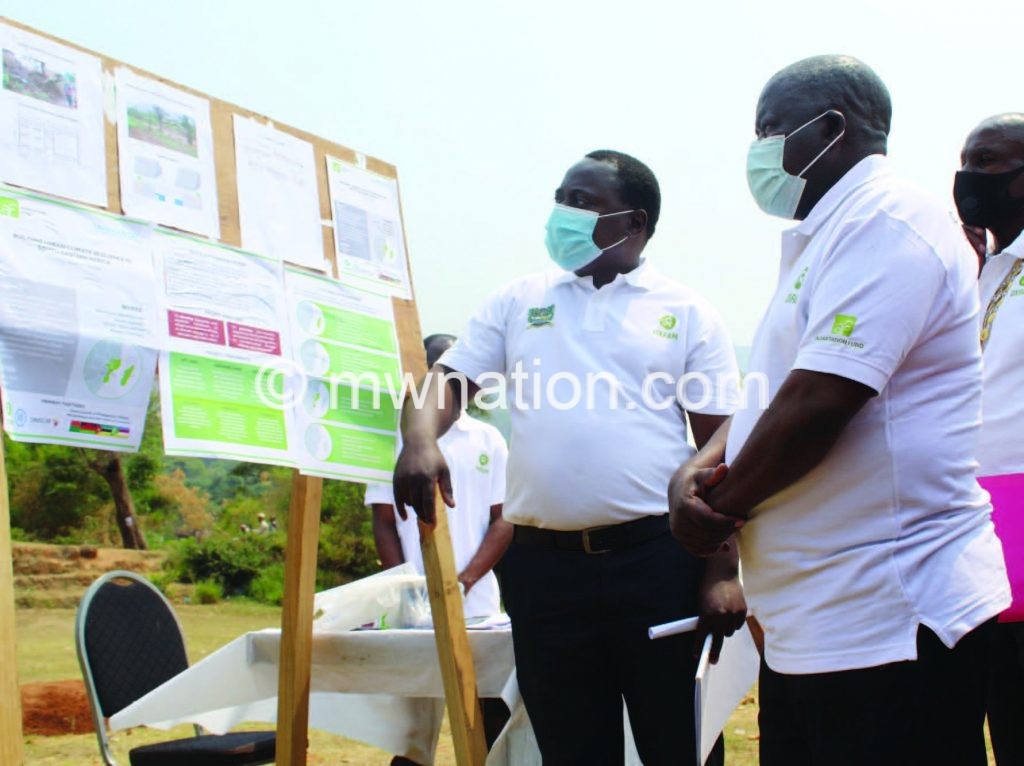Making Zomba resilient
Flashbacks of frequent floods in Zomba City have triggered a K1 4 billion initiative to lessen the risk and devastation of disasters fuelled by climate change.
Residents of the old capital remember heavy torrents in January 2015 when Likangala River burst its banks, ripping homes and crop fields located in its way.

The locals say there was little time to escape the swelling river choked by massive waste from the populous settlement along its banks.
Thousands of survivors fleeing falling homes took shelter in schools, disrupting teaching and learning much to the peril of children in the city at the bottom of the highly deforested Zomba Plateau.
The city dwellers suffered a similar tragedy in March 2019 when Cyclone Idai displaced nearly 90 000 people in the Southern Region.
“When the 2015 tragedy struck, I was taken by surprise because I thought cities were safe from disasters. Last year’s misfortune proved me totally wrong,” says Amina Mwale, whose rented home was reduced to rubble close to the Likangala River which splits her Mpondabwino slum from the populous Chikanda.

Urban disasters have become more frequent and devastating with effects of climate change, poor waste management, rapid population growth and unregulated land use. Away from Zomba, the cities of Mzuzu, Lilongwe and Blantyre have suffered flooding at least twice within the past half-decade.
However, Zomba City Council is earmarked to become a centre of learning on how urban populations can better reduce, anticipate, prepare for and cope with disasters associated with climate change.
Recently, Minister of Local Government Lingson Belekanyama launched a regional initiative to ramp up urban resilience to climate change in the city of half a million people with support from the Adaptation Fund through Oxfam. The initiative is also underway in Mozambique, Comoros and Madagascar.
He said: “Climate change is causing untold misery in urban areas, so we need to work together to make our cities safer for everyone.
“Urban disasters are becoming more frequent and devastating, so this project gives the remaining cities in the country and the other three implementing the project an opportunity to share experiences.”
Lately, Zomba has become a disaster hotspot alongside its neighbouring Phalombe District as well as Chikwawa and Nsanje in the Shire Valley.
The new project seeks to install city-wide early warning systems, modernise the drainage system blocked by waste, replenish trees in the mountain and along rivers, construct bridges and dams and establish centres where survivors can run when disasters strike.
The city’s Mayor Benson Bula explains: “Zomba is prone to flooding and hail storms that lead to loss of lives and property. In 2015, over 12 000 people took refuge in schools.
“The impact compelled the council and its partners to formulate a City Resilience Action Plan which gave rise to a proposal of the newly launched project.”
The council will construct evacuation centres in the prone townships of Sadzi, Masongola, Ntiya and Chinamwali where affected populations used to occupy classrooms, disrupting schooling.
“This will give the victims of the chronic disasters a safe place to run to when tragedy strikes,” says director of planning and development Fred Nankhuni.
The action plan triggered by the 2015 emergency was formulated in consultation with the locals and change agents, including Oxfam, UN-Habitat and Department of Disaster Management Affairs (Dodma), Leadership for Environment and Development in South-Eastern Africa, Forestry Research Institute and Environmental Affairs Department.
“The plan highlighted five main challenges and we needed to do something to lessen the harsh impacts of climate change. So, we wrote a proposal approved by the Adaptation Fund alongside those from Chokwe in Mozambique, Moroni in Comoros and Morodava in Madagascar.”
However, the Malawian city has to overcome manmade hazards, including widespread sights of waste dumped in rivers, massive felling of trees for fuelwood.
Oxfam country manager Lingalireni Mihowa is excited with the funding for Building Urban Resilience in South-eastern Africa Project.
She says it is pleasing that the government has warmly welcomed the $1.8 million initiative to increase Zomba City’s early warning systems, preparedness, solid waste management and conservation of riverbanks and mountains.
“Climate change affects everyone. However, when we get funding, we often rush to rural areas, excluding urban dwellers who have no crop field, livestock or social network to help them cope with the tragedy,” she says, demanding efficiency, accountability and transparency in the utilisation of project funds.
Moses Chimphepo, director of response and recovery at Dodma, says chronic urban disasters require integrated interventions that focus beyond rural settings.
He states: “For the past five years, several disasters have ravaged our cities, so we need to leave no one behind when building resilience. We need to build back better.
“Our cities need to learn from each other and I hope Zomba will do well and offer its partner cities beyond our borders a lot of lessons on what to do in the fight against the effects of climate change.”





